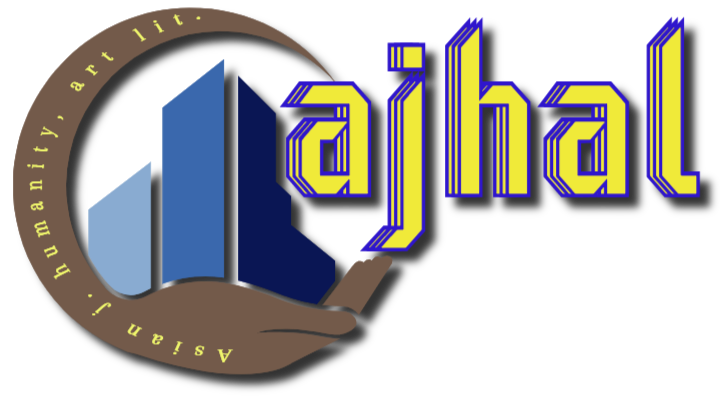Physical Abuse, Neglect and Academic Achievement of Primary School Pupils
DOI:
https://doi.org/10.18034/ajhal.v3i2.308Keywords:
Child Abuse, Neglect, Physical Abuse, Gender, Academic Achievement, Primary SchoolAbstract
The study focused on child abuse and neglect on pupils’ academic achievement in primary schools. The ex-post facto design was adopted. Out of the four forms of child abuse, two were identified for the study, physical abuse and neglect. Four research questions were formulated to guide the study. The population of the study consist of 3125 primary five (5) pupils. 312 primary five (5) pupils were selected as sample from thirteen primary schools from the population using simple random sampling technique. Mean and standard deviation were used to answer the research questions. The result revealed that physical abuse and child neglect influence pupils’ academic achievement. Based on the findings, it was recommended that parents and guardians should see beating, hitting, slapping, punching among others as physical abuse and should desist from using them as means of correcting children under their care. Rather advice and state the implication of any negative behaviour a child wears to correcting them whenever they derail from adult expectations on such children and also make home a peaceful place for their children, love, protect and care for them. The study concluded that if child abuse and neglect are reduced to its beeriest minimum, pupils’ academic achievement in primary schools would be enhanced towards development of other levels of education for national development.
Downloads
References
Adejobi, A, O, Osonwa, O, Iyam, M.A, Udonwa, R. E & Osonwa, R. H. (2013). Child Maltreatment and Academic Performance of Senior Secondary School Students in Ibadan, Nigeria. Journal of Educational and Social Research 3 (2) 175-183.
Adeniyi, E. (2010). Child Abuse: Nigeria is sitting on a Keg of Gun Powder. 2004–2012 African Newspapers of Nigeria, 1-4.
Akinteye, M. K. (2008). Comparative Effect of Mastery Learning and Enhanced Mastery Learning Strategies on Student’s Achievement in Mathematics. (Unpublished doctoral dissertation), University of Ibadan, Ibadan.
Akubue, F.N & Okolo, A.N. (2008). Sociology of Education, Nsukka: Great AP Express.
Apebende, E.U., Umoren, G., Ukepepi, B., Ndifon, R.A. (2010). African Research Review: An International Multi-Disciplinary Journal, 4 (1) 470-478.
Azikiwe, U. (2006). Gender Issues and Education in Nigeria. Implications for Growth & Development. Paper presented at the 11th Annual International Management Conference Organized by Makerere University Business School, Kampals, Uganda
Ba-Saddik, A.S & Hattab, A.S. (2013). Physical abuse in Basic-Education Schools in Aden Governorate, Yemen: a cross-sectional study. Eastern Mediterranean Health Journal, 19 (4). 333-339. DOI: https://doi.org/10.26719/2013.19.4.333
Browsard, Z. (2002). Causes of Poor Achievement in WAEC Mathematics Examination in River State Secondary Schools Nigeria. International Journal of Mathematics Education, 21(3).110-120
Canadian Centre for Justice Statistics (CCJS) (2001). Family violence in Canada: A Statistical Profile. Ottawa: Statistics.
Child Welfare Information Gateway (CWIG)(2008). Long Term Consequences of Child Abuse and Neglect. Retrieved April 4, 2013 from http://www.childwelfare.gov/pubs/factsheet/longterm.consequencies.cfm
Department of Children and Families (DCF) (2013). Retrieved 10 February, 2014 from http://www.icfs.gov/home.
Department of Children and Youth Affairs (DCYA) (2011). Children First: National Guidance for the Protection & Welfare of Children. Dublin: Governmetn.
Ebosele, M. (2000). Still a Cerim future for the African child. The Guardians p. 15
Eze, P. N. (2009). Effects of Peer Assessment on Students Achievement Factors and Interest, An (Unpublished doctoral dissertation) in French, University of Nigeria Nsukka.
Ezenwa, G. M. (2009). Influence of child labour and parental support on children’s achievement in school attendance and achievement motivation among primary school pupils in Nsukka. (Unpublished master’s thesis), University of Nigeria, Nsukka.
Federal Republic of Nigeria, (FRN) (2004) National policy on education (4th ed). Abuja: NERDC.
Finkelhor, D. (2008). Childhood victimization. Violence, crime andabuse in the lives of young people. Oxford University Press. DOI: https://doi.org/10.1093/acprof:oso/9780195342857.001.0001
Ganai, M. Y. & Ashraf, M. (2013). A Comparative Study of Adjustment and Academic Achievement of College Students: Journal of Educational Research and Essays 1(1),5-8.
Gaudin, M.C. (1999). The abused child and the school system. Ibadan: Royal Book Center.
Hildyard, K. L., & Wolf, D. A. (2002). Child neglect: Developmental issues and outcomes. Child Abuse & Neglect, 26(6–7), 679–695. DOI: https://doi.org/10.1016/S0145-2134(02)00341-1
Hopper, J. (2004). Child abuse: Statistics Research Resources. Retrieved January 25, 2014 http://www.google.com.
Ibiam, J. U. (2005). Incidence of Child Abuse in Primary School Children in Abakaliki Urban. Journal of Educational Systems Research and Development. Benin City: MONOSE Amalgamates.
Johnson, K. A. (2000). The Peer Effect on Academic Achievement among Public Elementary School Students. Heritage Foundation Center for Data Analysis. London.
Karma, C. M. M. (2009). The Relationship between Classroom Motivation and Academic Achievement in Elementary School-aged Children. Family Consumer Science Research Journal, 33(2), 106-120.
Maslow, A. H. (1943). A Theory of Human Motivation. Psychological Review, 50, 370-96. DOI: https://doi.org/10.1037/h0054346
Mills, C. (2004). Problems at home, problems at school: The effects of maltreatment in the home on children’s functioning at School. An overview of recent research. London: NSPCC.
National Clearing House on Child Abuse and Neglect Information (2001). Retrieved from http://nccanch.ach.hhs.gov/pubs/factsheets/long-termconsequencies.cfm.
National Society for the Prevention of Cruelty to Children (2010). Retrieved from http://www.nspcc.org.uk/inform.
National Society for the prevention of cruelty to children (NSPCC) (2010) Retrieved July 29, 2013 from http://www.nspcc.org.uk/inform.
Ngwoke, D.U. & Eze, U.N. (2010). Developmental Psychology and Education: Theories, Issues and Trends. Enugu: Timex Enterprises.
Nworgu, B.G. (2006). Educational Research: Basic Issues and Methodology (Second and Enlarged Edition). Nsukka, Enugu: University Trust Publishers.
Obaki, S., Sang, A., & Ogenga, P. (2013). Lessons from Mahatma Gandhi for Today’s School Principals: An Instructional Model. ABC Journal Of Advanced Research, 2(2), 44-54. DOI: https://doi.org/10.18034/abcjar.v2i2.24
Okpara J. (2001). Forms of Child abuse and Neglect practice amongst market women in Akwa South Local Government Area. (Unpublished Master’s Thesis). Nnamdi Azikiwe University, Akwa.
Olaitan S. O & Akpan, A.E. (2003). Childhood Development and Family life education. Bauchi: League of Researchers.
Out, J.E, Ushie, M.A;, David, E.O., & Ifere, A.B.E. (2011). The Impact of Child Abuse on Academic performance of youths in Calabar-South Local Government Area. African Journal of Educational and Technology 1 (2) 8-13.
Rowe, Eckenrode J. (1999). The timing of academic difficulties among maltreated and non maltreated children. Child Abuse and Neglect. 23(8) 813–832. DOI: https://doi.org/10.1016/S0145-2134(99)00044-7
Royal Canadian Police (RCP) (2006). Stopping Child Abuse. Canada: Canada.
Schore, A.N. (2003). Early Relational Trauma, Disorganized Attachment, and the Development of a Predisposition to Violence. In M.F. Solomon and D.J. Siegel (Eds), Healing trauma: Attachment, mind body and brain. New York, NY: Norton.
Sidebotham, P., Biu, T., Goldsworthy, L. (2007). Child Protection Procedures in Emergency Departments Emergency Medicine Journal 24: 831–35. DOI: https://doi.org/10.1136/emj.2007.051011
Toth S. L, Cicchetti D. (1996). The impact of relatedness with mother on school functioning in maltreated children. Journal of School Psychology 34(3) 247–266.
Tsegaye, M., & Moges, B. (2014). Roles And Challenges of Secondary School Instructional Leadership for the Achievement of Student Learning: The Case of South Gondar Administrative Zone, Amhara Region, Ethiopia. Asian Journal Of Humanity, Art And Literature, 1(1), 48-69. DOI: https://doi.org/10.18034/ajhal.v1i1.282
U.S. Department of Health and Human Services (USDHHS) (2003). National Survey of child and adolescent well being: Baseline Report for one-year in-Foster-care sample. Retrieved May 15, 2013 from http://www.act.hhs.gov/programs/core/ongoingresearch/afc/exec-sum-nscaw/exsum-nscaw.html.
U.S. Department of Health and Human Services Centers for Disease Control and Prevention (US.DHHSCDCP) (2010). National Center for Chronic Disease Prevention and Health Promotion Division of Adolescent and School Health. Retrieved July 29, 2013 from www.cdc.gov/HealthyYouth
Ugwu, G. C. (2007). Forms of Child Abuse and Neglect in Primary Schools in Nsukka Education Zone. An unpublished M.ed Project, Department of Educational Foundations, University of Nigeria, Nsukka.
Ukhurebor, H. E & Nnajieto, C. C. (2005). Philosophy of Education: The foundations. Owerri: Divine Mercy.
Wambui, N. (2000). An Overview on child abuse in Kenya. ANPPCAN, Regional Office.
World Health Organization (2002). Child Abuse and Neglect in Rights of the child in Nigeria. Retrieved February 10, 2014 from http://www.who.int/violence-injury-prevention.
World Health Organization (2006). Preventing child maltreatment: A guide to taking action and generating evidence. World Health Organization and International Society for Prevention of Child Abuse and Neglect. Retrieved November 16, 2013 from http://whqlibdoc.who.int/publications.
--0--















